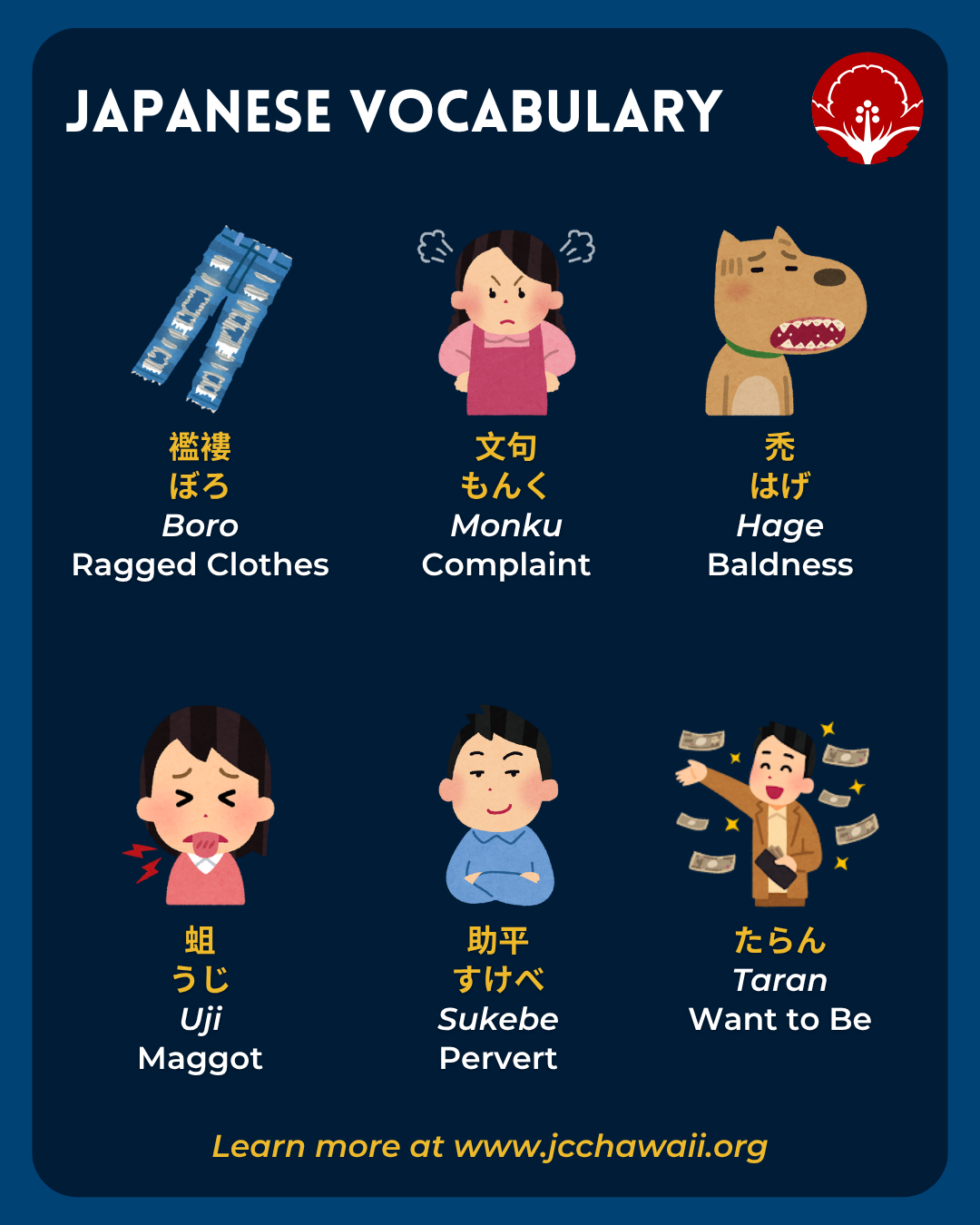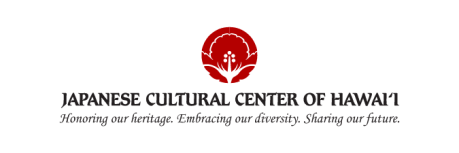| Word | Explanation | Example |
| Boro Boro (worn out) | The Hawaiʻi Pidgin word boro boro originates from the Japanese word boro ぼろ, which means rag, old cloth, or ragged clothes. It has been doubled and adapted in Hawaiian Pidgin to mean “tired” or “worn out/down.” | “Ho small kine boro boro da pants!” |
| Monku (complain) | In Japanese, monku もんくmeans complaint and has been adapted into Hawaiʻi pidgin. | “Get choke monku about da rail.” |
| Hagemoge (messed up) | In Hawai‘i Pidgin, hagemoge describes something as messed up, deformed, funny-looking, or ugly. The word likely draws partial influence from the Japanese word hage はげ, meaning bald or bald-headed. Hagemoge itself is a uniquely Pidgin term referring more broadly to things that are oddly shaped, out of order, or messed up, not just baldness. | “Da teeth steh all hagemoge.” |
| Uji (gross) | In Japanese, the word uji うじ refers to maggots. The term was adopted into Hawaiian Pidgin to describe something as disgusting, similar to “ew” or “gross,” and is used when something is offensive or makes your skin crawl. | “Kind of uji dat one...” |
| Skebz (pervert) | Skebz comes from the Japanese word sukebe すけべ, which means “pervert.” It is often used to describe someone who is overtly lustful or makes inappropriate sexual comments. | “Chout, dey kinda skebz!” |
| Tantaran (show off) | The Hawaiian Pidgin word tantaran, meaning “show-off” or “boastful,” is believed to have mixed Japanese and Tagalog origins. In Japanese, taran たらん means “try to be” or “want to be,” though it’s not certain that it’s directly connected to the Pidgin term. | “Buggah all tantaran with his new lifted yota.” |

